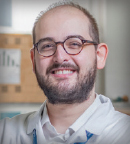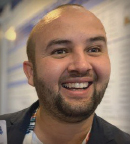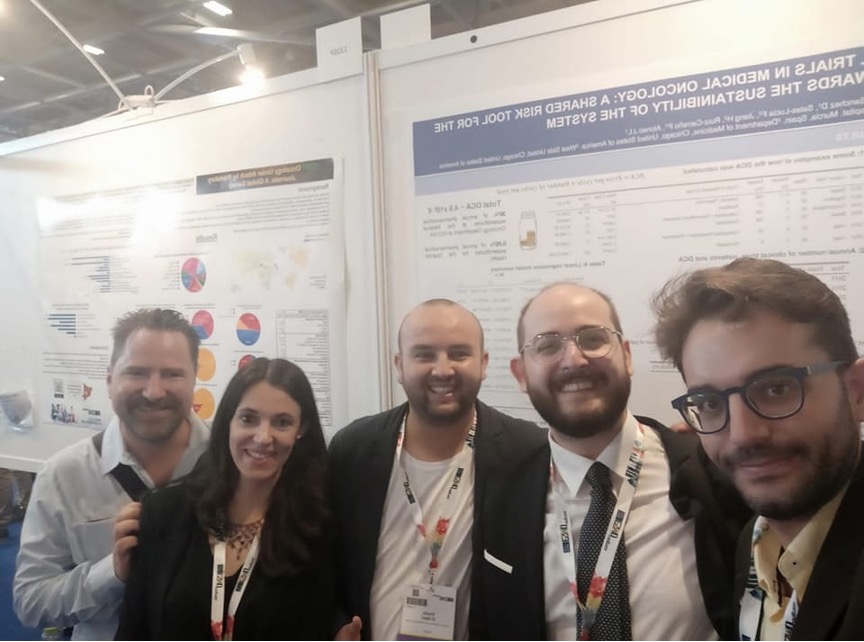In this installment of The ASCO Post’s Living a Full Life series, I interviewed Dario Trapani, MD, a medical oncologist at the European Institute of Oncology, Milan and Assistant Professor at the Department of Oncology and Haemato-Oncology of the University of Milan, in Italy. Dr. Trapani is a pioneer in global oncology, known not only for his contributions to cancer research and patient care, but also for his profound commitment to mentoring the next generation of oncologists and cancer researchers in low- and middle-income countries.
Dario Trapani, MD

On the founding of ONCOLLEGE: “ONCOLLEGE is a working group of oncologists and other cancer researchers and professionals that started as an online free platform of engagement for oncologists across the globe.... We are all volunteers for the community, offering support in networking according to our opportunities, time, and skills.”
On the future of cancer care and research: “I envision a future where people’s priorities—not profits alone—will shape the way cancer research will go. To achieve it, we need to work toward the future of the oncology leaders, to shape role models who deliver a positive impact for the people we serve.”
Introducing Dr. Trapani
Dr. Trapani is a medical oncologist trained in Milan. He spends half of his time with patients in the clinic and half focused on research into population health. “My passion for oncology began when I was in the medical oncology rotation during medical school at the University Hospital in Salerno, Italy,” he shared. “Ancient doctors from Salerno used to formulate public health recommendations phrased in short poems; I love poems. The ancient medical school of Salerno shaped my professional path—from science to people.”
Dr. Trapani shared these thoughts on serving in the oncology ward as an intern: “When I realized patients with advanced cancers were laying in their beds in contemplation, I noticed the ambience of sorrow and consolation, hope and resignation, disgrace and unexpected opportunities. I thought that life changes multiple times from admission for a patient who is transferred from the emergency department to the oncology ward in Salerno.”
First Medical Oncology, Then Global Oncology
I asked Dr. Trapani what initially attracted him to the field of medical oncology, and how did his focus shift toward global oncology?
Dr. Trapani shared: “My life changed when I moved from a small town to a big city—Milan. I learned from patients and improved my skills as a doctor under my mentor’s guidance; to me, it appeared that the grand challenge was to understand broader needs, beyond a single hospital or an academic group, to the world’s needs.
According to Dr. Trapani, his global oncology journey started by applying the oncology competencies to inform the broader cancer control. “In a world of medicine made up of etiquettes and hyperspecialization, factions, and ideology, oncologists usually need to find their own niche,” he added.
He expanded on the details of meeting challenges in global cancer control: “One must be aware that cancer produces sorrow by sublimating niches, affecting individuals from home to home, and across countries. Addressing the global cancer control challenges meant somewhat to embrace the original intent to find a solution to a human problem by enhancing equity paradigms. I knew what I wanted to do; I just needed to learn a new job in global oncology.”
Dr. Trapani shared one inspiring experience he had in addressing global oncology problems. “It was in one mission in a Central Asian country,” he explained, “when I met a group of women with breast cancer who were struggling to find the path to their diagnosis and appropriate treatment. I received inspiration by interviewing the local oncologists—a group of committed and highly skilled physicians —along with other health-care professionals who were confronted with limited political commitment to mitigating people’s suffering and limited investment to providing cancer care to all. I admired these professionals for finding creative solutions to make cancer care available for all. The key is knowing where to start: relieve those health providers from the need to challenge the system alone while shaping a system that provides health care to all—facilitating the infrastructure that could enhance their natural commitment.”
He continued: “We should all be global oncologists in the way our commitment and goals are devoted to enhancement in health quality for all people in need. We support the global community as one community.”

Khalid El Bairi, MD
Philosophy on Mentorship
When asked about his philosophy on mentorship and why it’s crucial in the field of oncology, Dr. Trapani replied: “My secrets are my mentors. I found myself in a privileged position as a trainee, because I knew I could trust my career development to my mentor, Prof. Giuseppe Curigliano at the University of Milan. He is the kind of person who supports young oncologists by shaping ‘your’ successful path, with a strong commitment to create innovative and unprecedented pathways. He has never hesitated to enable my path to global oncology..”
Dr. Trapani has been fortunate to have moral mentors on his career journey. “Dr. Ophira Ginsburg and Dr. André Ilbawi, of the World Health Organization (WHO), taught me the power of ‘sharing your privileges.’ It is clear we come from different experiences, as shaped by many factors that have nothing to do with our merits; for instance, is it a merit to be born in a high-income country? I could understand since my training that much of the talent of my young colleagues was not enhanced and lacked opportunity, despite their brightness,” he shared.
In addition, Dr. Trapani learned from Prof. Elisabeth de Vries of University Medical Centre Groningen in the Netherlands. He continued: “People can cross their roads by chance and shape a reciprocal support based on respect and trust. This is the greatest leadership lesson to me: find the skills everywhere, and invest in what is needed. Expanding perimeters and understanding the commitment, passion, talent, and merit are the first acts for a global oncologist.”
According to Dr. Trapani, it was important to understand how he could develop a system where reciprocity and support—not vain and self-referential competition—could represent models of inspiration. “That is where my ‘philosophy’ is rooted,” he noted. “The impact of our work is measured by how it improves a broken or wrong system; changes paradigms; and challenges distortions and avoidable sorrow.”
Shaping a Life Vision
I asked Dr. Trapani to share a story or moment that profoundly impacted or reshaped his approach to global oncology. Here is his reply: “I learn from all the people I meet—anyone I sit and speak with is in fact making me a gift. The more I feel uncomfortable, and the more differences emerge, the more I feel enriched.”
Dr. Trapani shared how a good friend, global oncologist Dr. Shahzeb Khan of Pakistan, shaped his life vision: “With Shah, I could envision the perspectives and reality of oncologists serving a rural area in a low- to middle-income country, and how commitment for best oncology and medicine makes a difference for individual patients while reconceptualizing a system. Shah is a talented doctor with a strong commitment for patients—the kind of illuminated intelligence you recognize at first glance. He has an inborn leadership quality and is a well-respected individual in the oncology community. I learned from Shah to listen, pause, reflect, and keep my coherent position when confronting an unprepared or hostile system.
Dr. Trapani explained how Dr. Khan’s networking skills and deep knowledge of oncology were key components in the founding of ONCOLLEGE—a working group of oncologists and other cancer researchers and professionals that started as an online free platform of engagement for oncologists across the globe to understand the needs and challenges of global oncology and offer a space for reciprocal support. “Shah has been the funder and present leader of ONCOLLEGE,” he explained. “To me, ONCOLLEGE is the realization of a long-idealized aspiration. With ONCOLLEGE, we are all volunteers for the community, offering support in networking according to our opportunities, time, and skills.”

Dr. Trapani (second from the right) with Khalid El Bairi (third from right) and members of the ONCOLLEGE working group and other researchers during the ESMO Congress 2022 in Paris.
Addressing Challenges in Global Oncology
According to Dr. Trapani, the rewarding attitudes in the oncology system appear somewhat skewed toward a star-system approach, with a business model that displays paradigms of superficiality and false advancements in cancer care. He explained his vision: “I often see many talented individuals who dedicate their work to change paradigms, through rational and structured approaches that go in the alternative directions from the mainstream oncology core business, who are left apart and excluded. At WHO, I learned that managing inclusiveness requires commitment and structured approaches. The grand challenge for oncologists and trainees worldwide is to get visibility—wherever they come from—overcoming prejudices and not being victims of the political environment where they live. Enhancing global oncology means working on the system barriers to result in equitable opportunities.”
The big challenge currently, according to Dr. Trapani, is working on stigma, structural barriers, and equitability. “I am not sure I have a real solution, but I commonly start—as I was taught—by creating environments where everyone has the right to express opinions without incurring retaliation or being left behind,” he explained. “Diversity is a value; inclusiveness starts from the exercise of listening nonjudgmentally. And when no one has proffered a single question,” he suggests, “go and ask! Everyone should have the chance—either in person or by e-mail—to express an opinion or propose an idea. That is what I learned by walking in silence throughout the campus of WHO in Geneva. Nobody is paying a price for expressing an idea that is different from yours. Extroverts may appear smarter, and parroting may be the strategy to be accepted in a group, but that is not what keeps you unique. Introverts can often change your world with few, essential, sharp, deep observations, and extroverts may often surprise you in private.”
The Future of Global Oncology
Dr. El Bairi asked Dr. Trapani how he envisions the future of global oncology, especially concerning low-income countries, and the necessary steps to achieve this vision. Dr. Trapani shared these thoughts: “As the cancer burden grows in low- and middle-income countries, and the pressure of epidemiologic transitions toward noncommunicable diseases affects the future of health worldwide, I envision a future where people’s priorities—not profits alone—will shape the way cancer research will go. To achieve it, we need to work toward the future of oncology leaders to shape role models who deliver a positive impact for the people they serve.”
Dr. Trapani shared some thoughts on paying it forward in the community. “My education was funded through the Italian public, tax-based system, and it is time to give back for the needs we express as a community, including to the invisible people we can’t reach in person. Systematic changes are those capable of impacting those who put their trust in us.”
According to Dr. Trapani, accelerating progress toward global cancer control requires that education in oncology and cancer care centers on the value of the health interventions we produce, implement, and emphasize. “Critical steps to fulfill my vision for a future of equitable care truly start from how we develop education of the cancer workforce,” he explained. “Although the current rewarding system gives the illusion that we must pursue someone else’s agenda or chase successful models like profit-oriented entrepreneurs, I still believe that what matters is what is valuable for people in need. The instrument to change the oncology system is through better education, to orient mind sets, enhance attitudes, and result in relevant research and cancer care. A system crisis should be tackled with system solutions.”
Furthermore, the hematologic oncologist Manju Sengar, MD, of the Tata Memorial Hospital in Mumbai was a guiding force for Dr. Trapani who taught him how value can be conceptualized, modeled, factualized, and implemented. “Manju is the quintessence of a global oncology expert,” he related, “one who can make a difference for the broadest populations of patients while keeping her feet on the ground. Manju is the humblest oncologist I know, whose actions are highly impactful.”
Initiatives in Global Oncology
When asked about any specific initiatives or projects he is currently involved in or planning to support global oncology, Dr. Trapani commented: “I am the current Chair of the Cancer Medicines Committee (CMC) at the European Society for Medical Oncology (ESMO). I have served ESMO as a volunteer since my training period; in this oncology Society, I have found the space to share ideas for global oncology and discuss possible accelerators to make outcomes tangible.”
Dr. Trapani shared some insight into his work on Access to Medicine at ESMO. “[This initiative] has multiple facets, from benchmarking efforts of the current status of global oncology, developing tools for public health, communicating values with the use of value scales such as the ESMO–Magnitude of Clinical Benefit Scale, and enhancing value in cancer care through implementation efforts. My commitment in the CMC committee has been expressed by the request to expand the number of members as well as achieve regional and gender balance while ensuring expertise from multilateral perspectives. In the committee I have encountered many daily sources of inspiration from professionals who are making a difference in the setting where they practice, and I feel proud to have the privilege to collaborate with them.”
Dr. Trapani offered some information on Common Sense Oncology, which is a global movement that was launched with an article published in The Lancet Oncology in July 2023. The article called for cancer care to focus on outcomes that matter to patients.1 To achieve these goals, the effort focuses on three pillars: (1) evidence generation, (2) evidence interpretation, and (3) evidence communication. The grassroots initiative includes clinicians, academics, policymakers, and patient advocates from health systems around the world. “Its comprehensive goals are to restore value in all oncology, from education and communication to clinical trial design, decision-making, and reimbursement decisions,” he said. “In a movement with the potential to transform cancer care toward value, I couldn’t feel more at home (including spending time with very good friends working there).”
Words of Wisdom
I asked Dr. Trapani what advice he would give to young medical professionals worldwide who are inspired by his work and wish to contribute to global oncology. He shared these thoughts: “My only advice to young medical professionals pursuing a career in global oncology is to consistently consider ‘what impact’ you will deliver with your work to the community and every day to wonder whether with your attitude, you convinced another to make a difference. The real failure for us as oncology providers in this field is to disappoint and become disengaged from people who can change the world. Perseverating in adverse paradigms makes us part of the problem. Always look at the broader (usually ideal) goals and consider the intermediate steps as necessarily minor while ensuring you produce a context that is functional to a system revolution.”
Dr. El Bairi is a clinical research fellow at the Faculty of Medical Sciences, Mohammed VI Polytechnic University, Ben Guerir, Morocco.

